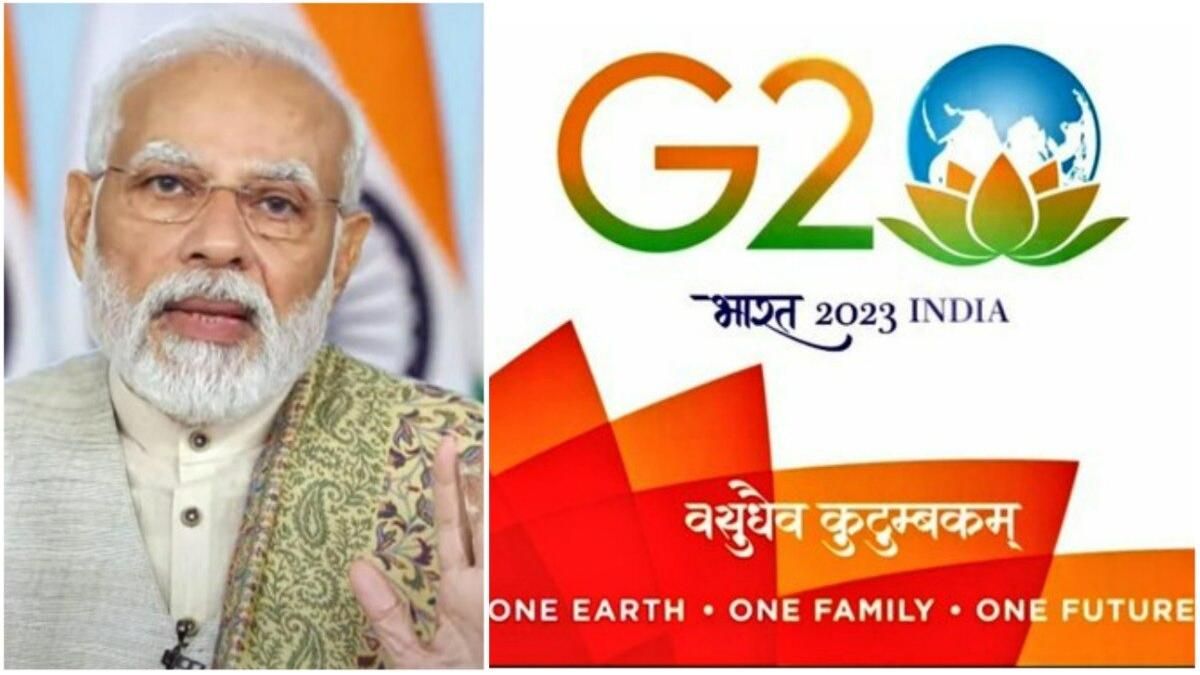
Far-reaching Consequences of G20 New Delhi 2023
G20: A Global Financial Outreach
G20 as a Group is a congregation of the 20 leading Established and Emerging Economic Powers that roughly comprise of over 85% of the World's GDP. It was founded in 1999 essentially to provide cushions to financial ups & downs to the global market. However, after the 2007 financial crisis, the respective Finance Ministers and Central Bank Governors elevated it to the participation of their Heads of the States to shape up the broad macroeconomic issues. It has since expanded its agenda to those Human Development issues that influence national economies such as sustainable development, health, agriculture, energy, environment, climate change, terrorism and corruption.
It had 19-member nations and the European Union as a block making it a group of 20 (G20). It works on two tracks; of Finance and Sherpa coordination groups which focus on virtually all aspects of Human Economic Development as mentioned above. They all work through various Engagement Groups bringing together civil societies, parliamentarians, think tanks, women, youth, labour, tourism, businesses and researchers of the G20 countries. The member nations in alphabetic order are as follows: -
Argentina, Australia, Brazil, Canada, China, France, Germany, India, Indonesia, Italy, Japan, Republic of Korea, Mexico, Russia, Saudi Arabia, South Africa, Türkiye, United Kingdom, United States of America and the European Union (as a non-State). In G20 New Delhi, State Heads of Bangladesh, Comoros, Egypt, Mauritius, Netherlands, Nigeria, Oman, Spain, Singapore and the UAE were special invitees by the Presidency under PM Modi.
G20 traditionally invites all leading International Financial organisations includes United Nations (UN), the International Monitory Fund (IMF), the World Bank (WB), the World Health Organisation (WHO), the World Trade Organisation (WTO), International Labour Organisation (ILO), Financial Stability Board (FSB) and Organisation for Economic Co-operation and Development (OECD). On the other hand, Chairpersons of the Regional Organisations of the African Union (AU), African Union Development Agency -The New Partnership for Africa's Development (AUDA-NEPAD) and the Association of Southeast Asian Nations (ASEAN) have long been invited as Observers as a practice. India having G20 Presidency, especially invited the International Solar Alliance (ISA), Coalition for Disaster Resilient Infrastructure(CDRI) and Asian Development Bank (ADB) as Guest Observers.
Aim & Objectives of G20
The aim of G20 is for the global economic progress. It has a rotational presidency of 1 year each from 01 Dec of a year to 30 Nov the following year. Nomination for the presidency is by consensus within the five groups shown below: -
G20 has been under long criticism for the inadequate representation from the African nations. As a result, there have been random opinions to expand it and India during its presidency was able to coordinate with all members to include the African Union (a group of 54 nations) as a new member and to include them in this summit meeting itself. India gained wide applause of the global south to be their prominent voice.
G20 2023: New Delhi
The 18th presidency of the G20 was given to India at the end of the 2022 Bali Summit. It was unfortunate that there was no consensus at Bali declaration. Hence, right from its first meeting on 04 Dec 22 at Udaipur, Modi govt conducted all its preparatory meetings of both Finance and Sherpa tracks with an objective to strike consensus, culminating in the summit meeting. The summit Meeting was in New Delhi on 9-10 Sep 2023 as the culmination of over 200 consultations of both ‘Trade Group’ and “Sherpa Groups” in over 60 cities across India. The basic theme of the meeting was “One Earth, One Family, One Future” on the principles of “Vasudhaiv Kutumbkam”, a global family.
It is believed that wide-ranging consultations in preparatory meetings of various groups were given the mandate from none other than PM Modi himself to adopt inclusivity, adapting the contemporary challenges relevant to the current generation of people with an approach to strike a consensus. The result of this approach is for the world to see….that for the first time in the entire history of G20 summit meetings, consensus on the draft declaration was arrived at by the end of the first session of the first day itself. This is an unprecedented achievement especially after the fact that the world leader could not form a consensus in Bali meeting in 2022 in view of the Russia Ukraine war. It must be remembered that the war still continues, even further escalated to a new dimension with the threatened use of ‘Dirty Bomb” of Radioactive material that may conflagrate into Nuclear flash point at any given time.
Indian diplomacy under PM Modi must be complimented for the feat that the world is going to remember for long...that will enter into the pages of the history of G20 summits. Indian diplomacy made the warring groups in Russia Ukraine war realise that by dissenting on the declaration, nothing could be gained by the G20 members as observed since Bali-fallout. It must have been a loss of growth prospects esp for the emerging economies hence, it is better to move on. Indian diplomacy must be complemented that they could form a general consensus. For the first time that G20 declaration document has no foot-note or Chair’s summary of dissension.
Major Takeaways from G20: 2023
There were at least five major takeaways in G20 Delhi declaration…
- The introduction of Women-led financial inclusion & empowerment.
- Making Biofuel Alliance group to reduce greenhouse gas emissions and reducing reliance on fossil fuels. It may become some $500 bn trade in the coming years.
- Committing $100 bn/year for helping developing nations to acquire green technologies.
- The inclusion of 54-nation AU in G20 would surely gain on the economic front.
- Making a point that absenting State Heads may not impede the decisions of G20 group.
Although not strictly a G20 decision, a multilateral mega India-Middle East-Europe shipping and railway connectivity corridor initiative by India, US, Saudi and the EU was praiseworthy. This is bound to leverage against the Chinese hegemony on their BRI, pushing several nations into debt trap. It may be highly beneficial to India to overcome Sino-Pak challenges of their CPEC as well as Gwadar obstacles. Could Saudi make Pak relent, the Middle-East Rail Corridor has great potential to extend through Afghanistan, Pakistan with India which has already connectivity projects with Bangladesh, Myanmar and beyond, some already working. It has far-reaching benefits of connectivity with respective Sea as well.
People do ask as to what India has to gain from G20 efforts? Indian leadership of PM Modi and his diplomats have had stunning success as world leaders. India has emerged as a voice of Global South. During the various meetings, India has showcased its Tourism potential, Cultural boosts, leadership in the MSME sector, potential export hub of Millets, export of biofuel that could be worth tens of billions of dollars. The Financial growth of India despite the pandemic makes all major economies to invest in the manufacturing sector with their FDIs.
India & PM Modi Walked the Talk on Initiatives
PM Modi has driven the G20 movement on the current Indian philosophy of his mantra “Sabkaa Saath, Sabkaa Vikas”. His governance model of financial inclusion of a large mass of ~50 Cr poor people with the banking system through a unique zero-balance “Jan-dhan” account, linked with free insurance cover of Rs 2 lakh is an example for the world. Financial growth of India in a relatively short duration of 9 yrs from 1.7 to nearly 4 trillion dollars is no ordinary feat in spite of the Covid pandemic and the Chinese threat of war that made India to spend heavily on OTS defence equipment. It must be remembered that Covid has devastated several major world economic powers. The world must take lessons from it. His schemes of Ayushman Bharat, Kisan Samman, Social Security to the labourers in unorganised sector and several other schemes have been praiseworthy in the world for a (read “What makes Modi so special for India?”, https://thecounterviews.com/articles/what-makes-modi-so-special-for-india/). Modi model of governance for the upliftment of poor people has surely walked the talk; and is an example for the world. This is what the objectives of G20 is all about.
Concluding Remarks
G20 New Delhi 2023 will be known for long for the inclusive and accommodative diplomacy of India that propelled it as a major global power. India could strike a few consensuses that were thought to be impossible by warring groups of nations in the light of the ongoing Russia-Ukraine war. PM Modi could win all hearts that could provide many takeaways to the world esp the African Union whose voices were seldom heard. The other major achievements were a commitment of $100 bn for Green Technologies for Climate Crisis, starting a new Biofuel alliance, working for a women-led development and Initiating a partial G20 Infrastructure Corridor. It was also considered a major achievement that despite the State Heads of two P-5 nations China & Russia being absent, no major decision was impacted. India emerged as a significant voice for the global south.

